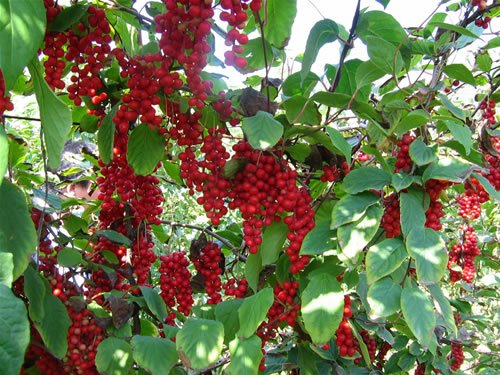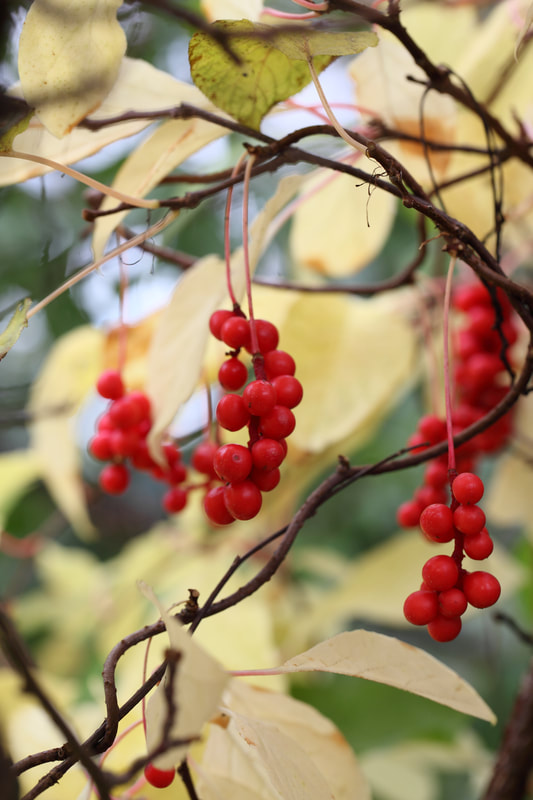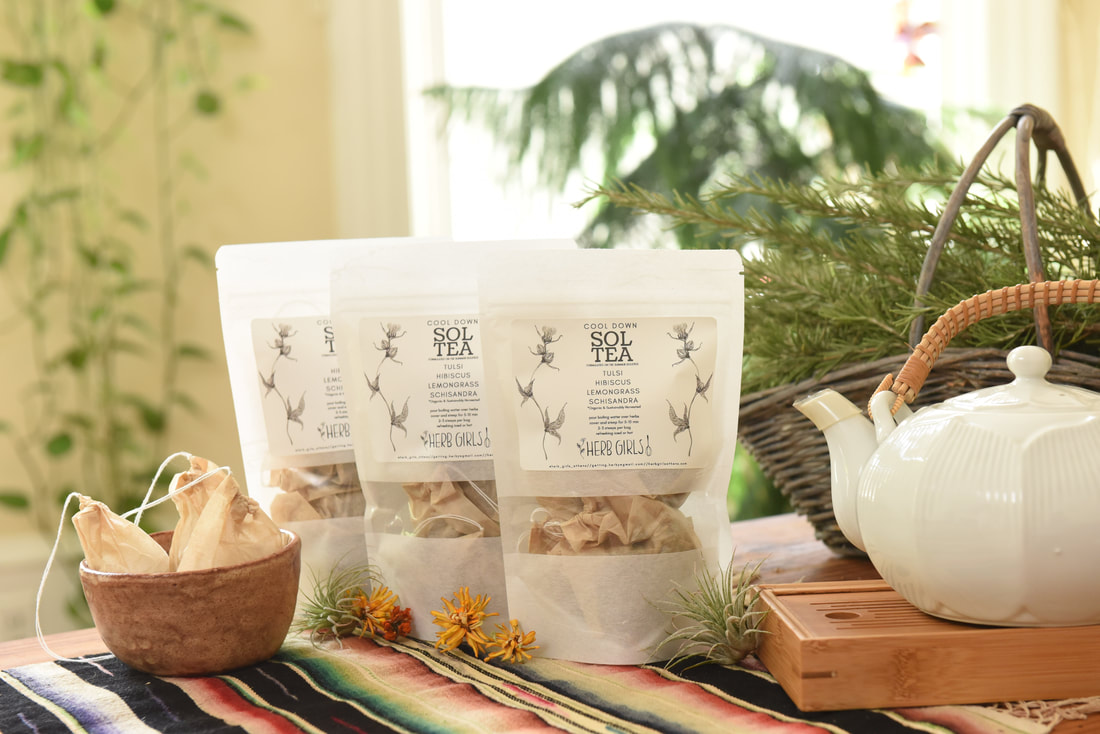|
This berry has our hearts, livers, immune systems, adrenals... Come to think about it, what can't this plant do? Schisandra is a longstanding adaptogen with the sort of gentle healing touch we could all use. With the summer heat in full-force, we have been enjoying Schisandra as a cool drink paired with Licorice root powder, Holy Basil and lemon. We decoct 1-2 tsp. of Schisandra berries in 10 oz filtered water for 5-10 minutes. We remove from heat and add fresh Holy Basil and an organic lemon wedge. Cap this with a lid and let steep for 15 minutes. Add a bunch of ice to the hot water or let cool in the fridge before enjoying the cooling, calming, enriching benefits of this powerful tonic strength berry. Read on for the full Materia Medica on our favorite "Five Flavor Berry". Schisandra Materia MedicaScientific Name: Schisandra chinensis Family: Magnoliaceae Taste/Energetics: Sour, sweet, bitter, pungent, warm, dry Actions: Adaptogen, antioxidant, anti-inflammatory, astringent, antiasthmatic, hepatoprotective, immune amphoteric, refrigerant, stimulant, cardiovascular tonic Parts Used: berries/seeds Uses: Schisandra is a prolific herb in Traditional Chinese Medicine (TCM) where it is known as Wu Wei Zi, which translates to the 5-Flavor Fruit. We call it the everlasting gobstopper of the herbal world. Its broad spectrum of flavor means it has the breadth to benefit many organ systems. In TCM, it is also said to enhance the 5 yin organs: liver, kidneys, heart, lungs, and spleen. Basically, when you hear yin, think nourishing. Schisandra “astringes the jing”, which means it remedies conditions caused by excessive fluids as in diarrhea, frequent urination, and excessive discharges (vaginal, sweat, mucus, premature ejaculation). Its ability to reduce excessive fluid means it is very useful for night sweats and menopausal conditions. In Chinese medicine, the kidneys allow the lungs to fully inhale; Schisandra helps the kidneys “grasp the lungs”, allowing for stronger respiration and the ability to take deeper breaths and have more productive coughs. Paired with its anti-inflammatory, antihistamine, and relaxing qualities, it is very useful for asthma and shortness of breath. Schisandra “calms the shen”. The shen is stored in the heart and represents the spirit or our consciousness; disturbed shen yields anxiety disorders, ADHD, and emotional/mental debility. By calming the shen, it is used for those with stress-induced cardiac issues, chronic insomnia, and anxiety disorders. Schisandra is incredibly beneficial food for the liver. It possesses the ability to regenerate hepatocytes- liver cells- and increase a powerful endogenous antioxidant, glutathione. Clinically, its been shown to protect us from liver damage and promote healing. Schisandra is one of the more stimulating of adaptogens, mildly stimulating CNS activity. Interestingly, it simultaneously enhances reflexes, mental and physical performance while also calming and relieving anxiety (when herbs work both ways like this, we call them amphoterics). Schisandra has also been found to have normalizing power over blood pressure, elevating hypotensive states and reducing hypertensive states- likely due to its calming properties. Safety: Increases the effects of barbiturates. Best practice is to discontinue the use of tonic strength adaptogens during times of acute illness. Dosage: 400-500 mg capsule 2-3x day/ 1-2 oz dried berries in 10 oz water, decocted for 5-10 min, steep 20-30 min 3x day/ 20-40 drops tincture 2-3x day. As a tonic strength adaptogen, take 5-6 days a week consistently for at least 3 weeks. Bodies love regularity but they also love breaks. It is wise to take a week off every 5-6 weeks for any tonic herbal regime. Plays Well With: Bacopa, Milky Oats, and Rhodiola for ADHD; Lemongrass, Holy Basil, and Hibiscus for the ultimate cooling drink; Milk Thistle, Turmeric, Artichoke Leaf, and Beet juice for liver health; Dang Shen and Prince Seng for wheezing, asthma, and general debility/chronic fatigue; Licorice, Cinnamon, and Fu Ling mushroom for strengthening vitality of lung and kidneys (this formulation is called Gui ling wu wei gan cao tang in TCM). Resources Upton, Roy. Editor. Schisandra berry (Schisandra chinensis): Analytical, quality control and therapeutic monograph. American Herbal Pharmacopoeia and Therapeutic Compendium. Santa Cruz, CA; 1999:1-25. Winston, David, and Steven Maimes. Adaptogens: herbs for strength, stamina, and stress relief. Inner Traditions/Bear & Co, 2007. https://examine.com/supplements/schisandra-chinensis/#cardiovascular-health_cardiac-tissue
Sasha Gracia
11/2/2019 09:15:25 am
Comments are closed.
|
Eileen Brantley & Amy WrightWe are Herb Girls Athens, LLC. Read our blog! Archives
November 2022
Categories
All
|




 RSS Feed
RSS Feed
